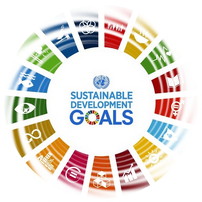 |
Spring Newsletter - Welcome to our second newsletter of 2020, rounding up the latest news and views on our research, training and education programmes. - Amid these difficult times and until lockdown is lifted, all events are either postponed or moving online. So expect to see more of us on BigBlueButton or Zoom – as per our World Health Day workshop, held in partnership with Amnesty International, Nature India and the Red Cross. In the meantime, local updates on the coronavirus are available thanks to our colleagues at Maastricht University. - Overall we explore the push and pull of international development: focusing on innovation through science and entrepreneurship (#SDG9), and governance through public policy analysis (#SDG16). |
|
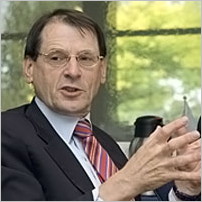 |
Upcoming Events - Prof. Jo Ritzen will host a virtual seminar, ‘Can the EU emerge from the crisis with a vision?’ on 23 April 2020. He argues that whatever countries do to fight the coronavirus, the economies of many EU countries will be in disarray when the lockdown is finally lifted. To this end, he presents a new vision for EU countries to exit the crisis – through a heightened respect for sustainability and the public sector. This vision will rely on reinforced EU cooperation and a commitment to sustainable development, joint taxation and sound fiscal conduct. |
|
 |
Latest News - In times of crisis, we tap untested resources and resilience. On 18 March 2020, for the first time in our history, one of our doctoral students defended her thesis virtually — a direct result of the coronavirus pandemic. In this post, Dr. Mary Kaltenberg is joined by one of her supervisors, Prof. Neil Foster-McGregor, to discuss the background and outcome of this extraordinary event. - We are delighted to announce the appointment of Prof. Bartel Van de Walle as the next Director of UNU-MERIT. Prof. Van de Walle holds a PhD in Mathematics from the University of Ghent in Belgium and has authored around 150 peer-reviewed papers on issues related to information systems, decision-making and policy analysis, often in the context of humanitarian response. He will take up his position on 1 September 2020. - ‘Stopping coronavirus - what does the evidence say are the best measures?’ is a joint post by Dr. Sanae Okamoto of UNU-MERIT and Dr. Claudia Abreu Lopes of UNU-IIGH, which has been read over 38,000 times on The Conversation UK. The authors note how COVID-19 has spread rapidly, albeit at different rates across different countries -- but crucially, Asian nations have learned from previous outbreaks like SARS in 2003. There may be no single best strategy, however, as measures will have varying results in countries with different political and health systems, operating procedures and social norms. |
|
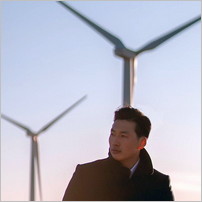 |
Recent Publications - What kind of scientific research improves the overall quality of technologies? According to a new study, high-quality academic research has contributed significantly to high-quality patents — albeit with strong regional variations between for example China and the USA. / How has refugee migration evolved, globally, since World War II? A new paper refutes claims of a substantial linear increase, citing historical underestimates and the recent inclusion of internally displaced persons and those in ‘refugee-like’ situations. See our full January 2020 roundup here. - How far do international climate change projects ‘trickle down’? A new journal article investigates how 30 internationally-funded adaptation projects affected — and included — vulnerable local communities. / What are the drivers of new and quality jobs in the developing world? A new policy brief considers the role of structural transformation in the labour markets of various emerging economies. Read our entire February 2020 summary here. - How will the green technology ‘revolution’ affect economic growth and structural change? A new working paper looks at options for catching up across various developing countries, including China. / How does technological change affect income inequality? A new thesis finds that technological change can have both positive and unintended negative effects – and that understanding the context can help guide policymakers. See our first impressions from March 2020 here. |
|
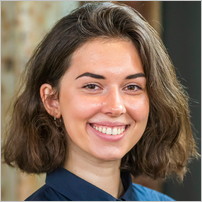 |
Application Deadlines - Apply by 15 June 2020* for our Master of Science in Public Policy and Human Development (MPP), a double-degree programme from Maastricht University and United Nations University. What can you expect? A concentrated one-year programme; around four hours of class per day; training in small international groups; skills workshops, presentations and debates; personal guidance; and a challenging but rewarding programme! (*15 July 2020 for EU/EEA applicants.) - Want an international career? Develop your intercultural communication skills on this unique Master’s programme, say alumni Nassim Abba, who now works on development programmes for the Royal Dutch Football Association, and Raphael Kamp, currently working on refugee integration for a large municipality in Germany. |
|
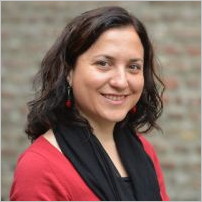 |
Alumni Activities - Read the latest from PhD alumna Dr. Sepideh Yousefzadeh, who reports from the University of Groningen, NL on the pros and cons of the rapid move to online teaching. “Shifting to online education is not happening in a vacuum and is not only about changing the tools and platforms (as challenging as they might be)... One key component in this journey is to identify, acknowledge and accommodate diversities.” - Also check our Master’s alumni testimonials from four continents, a Shorthand post featuring videos from Australia, Brazil, Ecuador, France, Germany, Mozambique, the Netherlands, and Spain. “If you're thinking about taking the MPP at UNU-MERIT, do it!” says Dr. Andrés Mideros Mora. “You will find an international environment, amazing professors, both as human beings and as academics. And you will obtain tools and knowledge to make a difference in the field of public policy. I do feel I make a difference in my work, both as a researcher and as a policymaker. And I do believe that studying at UNU-MERIT played a strong role for this.” |
|
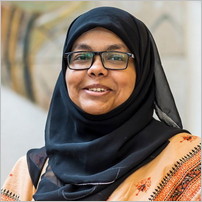 |
Multimedia - See our Shorthand post on ‘How to make a city sustainable — in a single day?’, which follows a group of award-winning Master’s students on a trip to Budapest, Hungary. Designed for students of public policy, this simulation competition involved planning and rolling out a sustainable public transit infrastructure in an assigned city. - Also check the latest ‘European Panorama of Clusters and Industrial Change’ for the untold story of industrial clusters, which account for nearly a quarter of all jobs across Europe -- over 60 million -- and half of total employment in exporting industries. - We also hear from Orange Knowledge Programme scholar Shaan Muberra Khan, from our short course on Evidence-Based Policy Research Methods (EPRM). She gives a range of recommendations on how to win a scholarship. Above all: "Remember, your application should reflect your dream about making a difference, your innovative thinking, and your future ‘small’ steps to ensure a change." - Finally, check our ‘Six lessons in policymaking’, based on a lecture visit by Dutch politician Lilianne Ploumen. She advised our students, whom she called future policymakers, to “try to see a compromise not as a watered down opinion, but as a very strong common ground.” - Until next time, in early July, please check our social media accounts on Facebook, LinkedIn, Twitter and YouTube – where you can already see the testimony of alumnus Dr. Carlos Cadena Gaitán on his recent recovery from COVID-19. You can also stay up-to-date on all our major publications via our monthly ‘First Impressions’ roundup. Image credits: UN Photo / M.Elias; UNU / H.Pijpers |
|
- ABOUT US
- RESEARCH
- EDUCATION
- The Graduate School
- PhD Programme
- MSc Programmes
- Capacity Development
- News
- Design and Evaluation of Public Policies (DEPP)
- Design and Evaluation of Innovation Policies (DEIP)
- Evidence-Based Policy Research Methods (EPRM)
- Migration Management Diploma Programme (MMDP)
- Moving the Migration Policy Agenda Forward (MMPAF)
- Online Courses
- Short Courses (Masters)
- Tailor-made programmes
- UNU-MERIT, ITU Academy Training Centre
- Alumni
- Academic Funding
- NEWS
- EVENTS
- PUBLICATIONS
- LIBRARY





